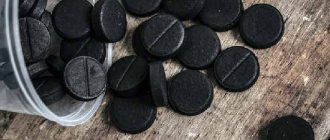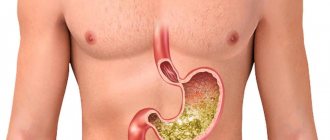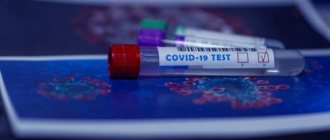When people say “my mouth is watering,” they usually mean that something looks and smells delicious. Alas, for those who suffer from hypersalivation, this expression takes on a different, much less pleasant meaning. Increased salivation may indicate health problems. Hypersalivation is often a side effect of a particular disease. If you think your body is producing too much saliva, consult your dentist or physician.
Below is some general information about saliva to help you better understand what to do about excess saliva.
Increased salivation: causes and treatment
Hypersalivation - what is it?
Why is there a lot of saliva in the mouth?
Salivation during sleep
Excessive salivation during pregnancy
Treatment of hypersalivation
Saliva is not just a liquid secreted in the mouth. Saliva is involved in the digestion process and protects the body from bacteria. The process of salivation is not controlled by humans. Usually about 2 liters of saliva are produced per day. Under the influence of certain factors, its amount can greatly increase. In this article we will talk about the causes of increased salivation and how to treat it.
Diagnostics
With the problem of drooling, patients turn to a dentist, or less often to a therapist. Given the variety of causes of pathology, the doctor is required to take a detailed medical history and clarify related complaints. The diagnostic search begins with an examination of the oral cavity to identify signs of inflammation or caries. To establish the causes of drooling, the following instrumental and laboratory diagnostic methods are used:
- Biochemical analysis of saliva.
The study evaluates the amount of fatty acid metabolites formed during the life of bacterial flora. Based on the results of the analysis, it is possible to determine the presence of dysbacteriosis and determine the level of damage to the digestive tract. - General clinical studies.
Patients with drooling undergo a general blood test, changes in which indicate the presence of an inflammatory or infectious process. To exclude helminthic infestations, a coprogram is prescribed, a fecal examination for helminth eggs. According to indications, a clinical urine test and studies according to Nechiporenko and Zimnitsky are performed. - Instrumental techniques.
If a patient suffering from drooling has complaints about the functioning of the digestive system, an ultrasound of the abdominal organs and plain radiography are necessary. To exclude neurological diseases, CT or MRI of the brain is recommended. Electroneuromyography is effective for assessing the functions of peripheral nerves.
Why is there a lot of saliva in my mouth?
Let's consider the possible causes of increased salivation
| Oral diseases. These include: stomatitis, gingivitis, glossitis, etc. Bacteria provoke irritation of the salivary glands, hence the excessive secretion of fluid. If these diseases are not treated, inflammation of the salivary gland may occur. |
| Having dentures or braces. The structures cause irritation of the mucous membrane, which provokes excessive secretion of fluid. This problem is especially noticeable in the first two weeks after installation of the structure, when adaptation occurs. |
| Gastrointestinal diseases (gastritis, pancreatitis, stomach ulcers, etc.). The problem most often occurs against the background of increased stomach acidity. Other reasons that doctors highlight: liver dysfunction, worms, stress on the pancreas. |
| Diseases of the central nervous system (cerebral palsy, Parkinson's disease, irritation of the trigeminal nerve, migraine). A similar condition occurs when the functioning of the vestibular apparatus is disrupted and blood pressure increases. |
| ENT diseases, ARVI, inflammation of the adenoids. The person begins to breathe predominantly through the mouth, as nasal breathing is difficult. The mucous membrane dries out, causing the glands to begin to work actively. |
| Changes in hormonal levels - problems with the thyroid gland, diabetes, menopause, etc. |
| Smoking. Tobacco smoke irritates the salivary glands. They begin to produce a lot of fluid. This is why smokers have the habit of spitting. |
Indications for removal of salivary glands
The salivary gland must be removed in the following cases:
- duct blockage;
- cyst formation;
- development of benign neoplasms;
- salivary gland cancer.
A blockage of the salivary gland duct occurs when calcareous deposits in the duct form a calculus (“stone”) that obstructs the outflow of gland secretions. As a result, the patient feels pain in the area of the inflamed gland, and its size increases. It is possible that a secondary infection may join the inflammatory process.
A cyst is a capsule filled with liquid contents that appears in place of the salivary gland. The cyst is characterized by the same symptoms as blockage of the salivary gland duct. A characteristic feature of salivary gland cysts is a tendency to progressive growth.
Benign neoplasms, usually an adenoma of the salivary gland, are also prone to growth and can reach such large sizes that they deform the oval of the face, leading to the appearance of noticeable cosmetic defects in appearance. A growing tumor puts pressure on surrounding tissues, which can cause problems in their functioning.
Cancer (adenocarcinoma) of the salivary gland is very dangerous to health, as it is prone to rapid growth, penetration into nearby organs and metastases.
Salivation during sleep
Sometimes, when a person wakes up, he notices wet spots on the pillow. This usually happens due to extreme fatigue and sound sleep. However, if salivation during sleep becomes a pattern, you should consult a doctor.
The main factors that provoke the secretion of saliva during sleep.
- Malocclusion or missing teeth. Saliva flows out because the teeth do not close completely.
- Difficulty in nasal breathing: runny nose, deviated nasal septum, colds. All this forces you to breathe through your mouth. Since the lips do not close, the accumulated fluid flows out. This is often accompanied by snoring.
- Deep sleep.
Which specialist should I contact for help?
If copious salivary secretions are washed off into the mouth, and the symptom does not go away during the day, you need to consult a specialist. The problem may well indicate some kind of internal disorder, so the sooner you react, the higher the chance of starting treatment on time, without waiting for complications to develop. In such a situation, you need to consult a dentist or therapist. After the initial examination and diagnosis, if necessary, the doctor will redirect you to a specialized specialist, for example, a gastroenterologist, parasitologist, etc.
Excessive salivation during pregnancy
During pregnancy, hormonal changes occur in the female body. The main reasons why an expectant mother’s salivation increases.
- Heartburn. When the acid-base balance in the stomach is disturbed, the body begins to produce a lot of saliva. This is a defensive reaction.
- Reaction to medications.
- Toxicosis. To stop gagging, the expectant mother tries to swallow saliva less often. Therefore, it may seem that there is more saliva in the mouth than usual.
A large amount of saliva does not threaten the fetus, however, if this is a consequence of any disease, then the pregnant woman should monitor her condition.
What complications are possible?
- Impaired taste perception of food.
- Dehydration of the body.
- Insomnia, disturbance of psycho-emotional state.
- Deterioration of the skin condition on the face and body.
- Infectious diseases.
What does traditional medicine offer?
In some situations, when the source of the problem is not such a serious pathology, traditional medicine helps reduce the intensity of the salivary glands. Here we must immediately make a reservation that such recipes can only be used after consulting a doctor and making an accurate diagnosis. So, let's look at the most effective tips.
Quince decoction
The fruit must be thoroughly washed, then cut into small pieces and placed in a pan. Pour quince with a liter of water and put on fire, boil until about half of the liquid has evaporated. After this, you need to add 50 g of sugar to the pan and continue cooking until it is completely dissolved. The decoction should be filtered and taken orally in small portions throughout the day.
Quince is often used for treatment
Infusions from healing herbs
Take one tablespoon each of nettle, St. John's wort and serpentine rhizome, mix together and pour 600 ml of boiling water. Next, the mixture needs to be put in a dark place and left there for at least a couple of hours - the product needs to infuse. After this, the tincture must be filtered and then used as a mouth rinse, preferably every time before meals.
Water pepper tincture
You need to take the pharmaceutical composition of water pepper, namely one teaspoon of the ingredient. Pour the product into a glass of warm water and use it as a mouth rinse after each meal. The course lasts on average about 10 days.
Chamomile decoction
Take one tablespoon of dried chamomile flowers and pour 50 ml of boiling water. Place the resulting substance in a dark place and let it brew for at least 40 minutes. After this, the broth should be filtered and then used to rinse the mouth 3-4 times a day.
Chamomile decoction helps well in treatment
Treatment of hypersalivation
There is no single treatment method for all cases. However, you can use methods to reduce the activity of the salivary glands - sometimes they are recommended by doctors as an addition to complex therapy.
- Reception of sorbents: activated carbon, polysorb, etc.
- Taking medications prescribed by a doctor.
- Exercise therapy, massage (most often prescribed for children).
- Botulinum toxin injections.
In rare exceptions, the salivary glands are partially removed, but the downside is that there is a risk of damaging the facial nerve.
Which doctors will help you cope with this disease? Dentist, gastroenterologist, endocrinologist, neurologist, infectious disease specialist, etc.
How to get rid
The elimination of hypersalivation is carried out by specialized specialists:
- dentists work with local causes,
- gastroenterologists solve problems with the gastrointestinal tract,
- neurologists treat diseases of the nervous system,
- endocrinologists – hormonal imbalances,
- Infectious disease specialists and toxicologists prescribe therapy for poisoning.
Drug therapy
If excess fluid in the oral cavity reduces the quality of life, in addition to general therapy, the doctor prescribes symptomatic treatment - anticholinergics:
- scopolamine;
- riabal;
- platiphylline.
Scopolamine has fewer contraindications - only glaucoma. Platiphylline has glaucoma, organic kidney and liver diseases. Riabal is taken during pregnancy, but it is contraindicated for problems with the prostate, gall bladder and kidneys, intestines, cardiovascular system and many other diseases.
Platiphylline has the least side effects - dry mouth, blurred vision, difficulty urinating and rapid heartbeat.
A quick but temporary effect is achieved by intramuscular injections of Botox into the area of the salivary glands - in the cheeks and cheekbones. Botox blocks the nerve signals that the salivary glands transmit to the brain, and due to this, a strong response to irritation of the glands does not occur and saliva is not released in large quantities.
Facial massage is useful for hypersalivation of a neurological nature.
The method of selective removal of the salivary glands is used extremely rarely, since the procedure is fraught with damage to the facial nerves.










